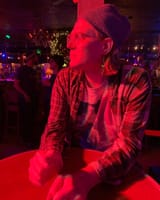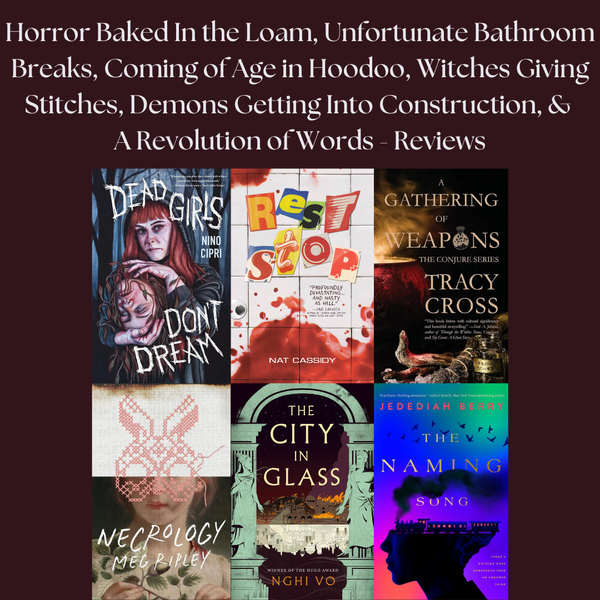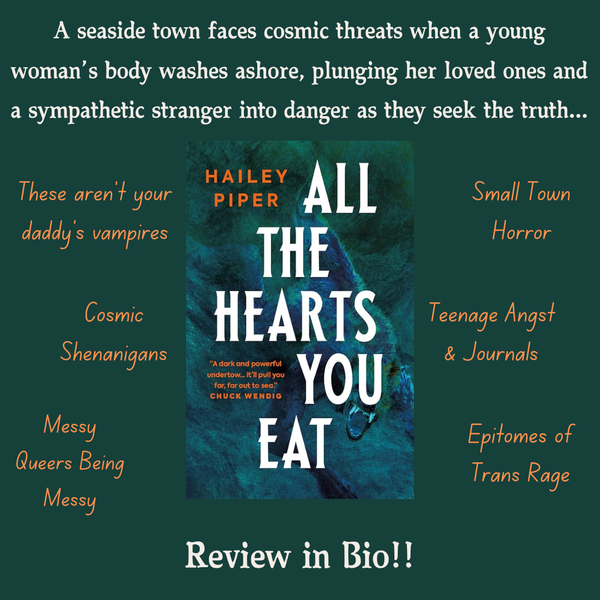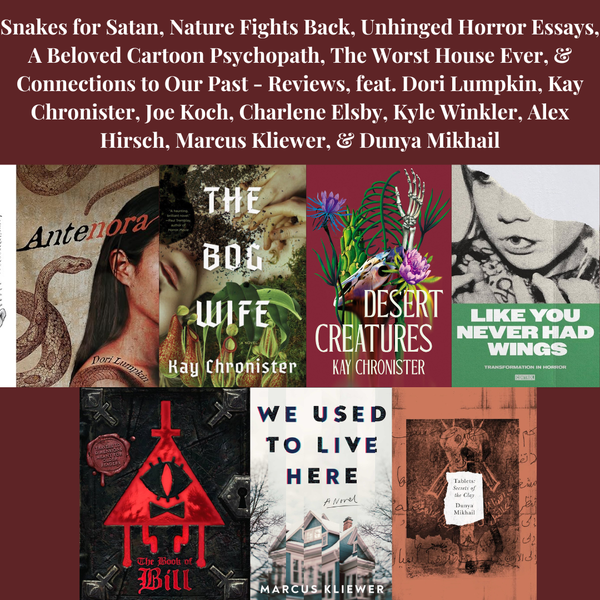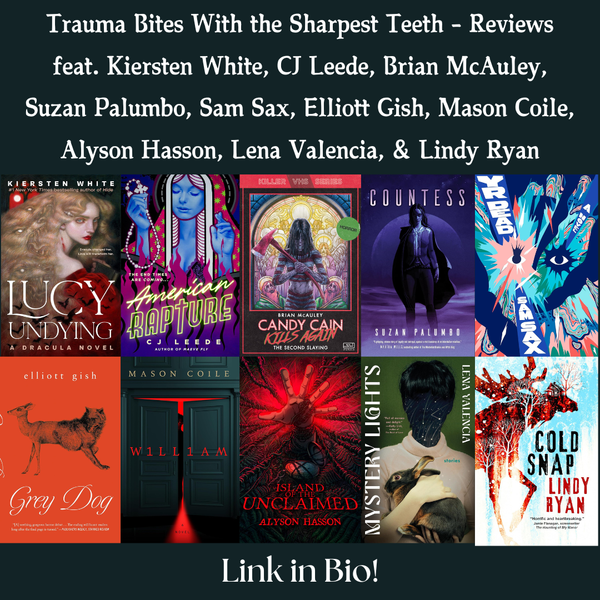Why is Grief Horror Having a Big Moment? - Reviews
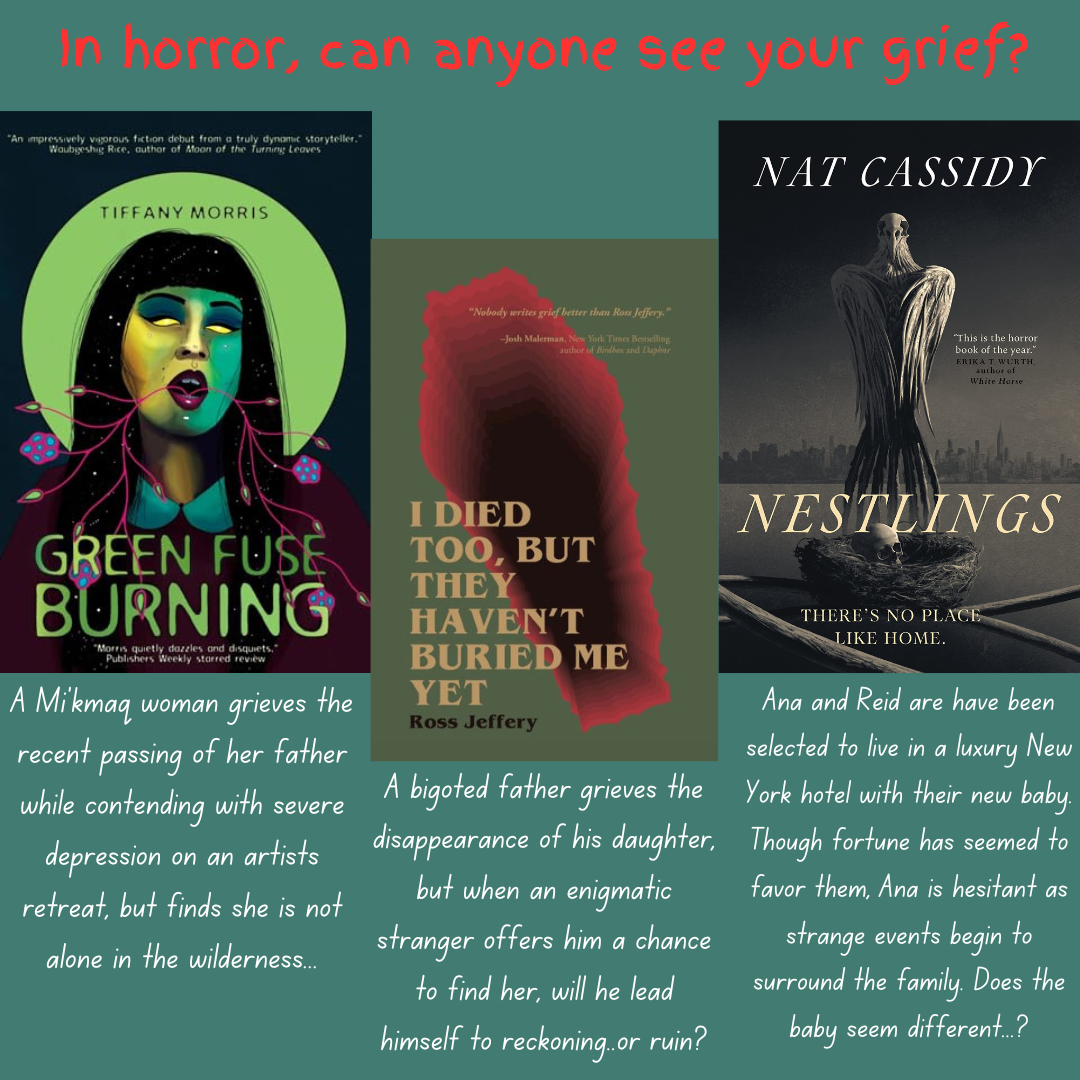
With the consistent growth of horror content in the past few years, we've witnessed exciting new spins on perhaps older subgenres, redefining what we fear and how we fear. One of such subgenres is what has been lovingly deemed Grief Horror.
Spanning decades, grief has acted as a backdrop to some of the most unique and hardest hitting films, books, shows, and even comics. Many auteurs of contemporary horror cinema often meditate on this trope–rhymes with Smari Smaster–to varying degrees of success. Though, to be fair, cinema is often a hard medium with which to fully express themes of grief and trauma, or rather it's difficult for some Hollywood producers to do so. REGARDLESS, grief is a theme intensely familiar to any human with even a modicum of a heartbeat, being that we all experience grief at different points in our lives, with varying forms of experience. Some may be seen as fortunate if they don't experience much grief in their lives (though this is conversation for an entirely separate post).
This speaks to much of the appeal of Grief Horror. Fear of death, forgetting our loved ones, anxiety over what comes after–these are the myriad things that keep us up at night. Intellectually and spiritually, these are questions that follow us daily, prompting further emotions such as anger, nostalgia, bargaining, or even despair.
Many of my favorite books of last year could be classed as Grief Horror, and some authors have even been noticed for their especial prowess when writing this subject. Today, I'd like to focus on three outstanding recent releases that expertly display these themes: Green Fuse Burning by Tiffany Morris, I Died Too, But They Haven't Buried Me Yet by Ross Jeffery, and Nestlings by Nat Cassidy.
Green Fuse Burning - A devastatingly gorgeous Indigenous horror
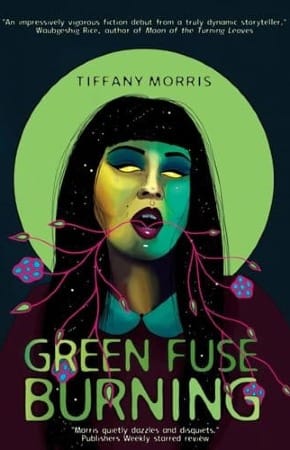
Holy good god, this novella...This was a title I sought to read ASAP at the close of the year, after seeing so many sing its praises. Rita, a young Mi'kmaw artist, has recently lost her father. As a way of seeking reconnection to this relationship, she finds herself foist into an artist retreat where she paints some of the most emotional and experimental work to date, but how much of this work is her and how much of it is the strange nature surrounding her? Rita's arc may be one of the most earnest depictions of depression I read last year, beside Sarah Rose Etter's Ripe.
Intrusive thoughts, survivor's guilt, the whole gambit is run within the under 200 pages of this expertly crafted story of attempting to overcome depression. I almost expected the book to be much darker, but Morris delivers something so hopeful and beautiful in its depiction of battling forces that seek to destroy you. Everything is achieved through achingly gorgeous and poetic writing, making even the most unnerving parts sing in ways that will leave you permanently changed.
Even the supernatural force of this novella was something so unique and has prompted the book to be considered an eco-horror as well, being that so much of the action and thematic structure is connected to nature and how we work within it/fight back against it. A stunningly gorgeous tale that will take your breath away, Green Fuse Burning deserves to be mentioned amongst the cannon of other great Grief Horrors in just how well it blends its themes and genres.
Nestlings - Or, what would happen if Rosemary's Baby was directed by Joe Dante and included a butt-ton more Jewish mythology
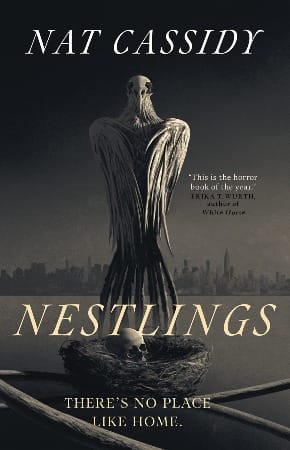
I have a lot of love for this book. This is not merely due to my recently meeting Nat and being swept up in his absolute sweetness and charisma, but of his current horror novels, the other being 2022's Mary, Nestlings has to be my favorite.
None of that is to besmirch Mary, however, because that has to be one of the most uniquely unhinged books I've ever read. I almost treated these two books as a double feature, listening to the audiobook for Mary at the end of last year and reading Nestlings in but a few fevered sittings last week as I devoured it whole. As someone who has been wanting to read Cassidy's books for quite a bit of time, it was a pleasure to experience both practically back to back.
Both books approach grief in their own way, with Mary's journey through perimenopause and hellish occultism acting as Cassidy's homage to the struggles he witnessed his mother endure as he was growing up. For Ana, the protagonist of Nestlings, there are many levels of grief she battles before coming out the other side. Much of this is characterized by the Afterward of the book, where Nat details the heaps of grief and adversity that led to much of the narrative themes and character arcs of the story.
Part of the joy of reading a Nat Cassidy story is the supplemental material you can find before and after, as he walks you through what brought about these books and why he wrote them the ways he did. Being that he and his wife's personal griefs and traumas brought about this powerful tale, it's no wonder half the characters face and overcome half of what they do.
I don't want to say much more in fear that I would spoil the book for anyone looking to read it. You absolutely should. It's dark and devious and funny and emotional and utterly horrifying all at once and stands as a fantastic entry into the growing contemporary Grief Horror cannon.
I Died Too, But The Haven't Buried Me Yet - Who let a cis man write a book this good???!!!
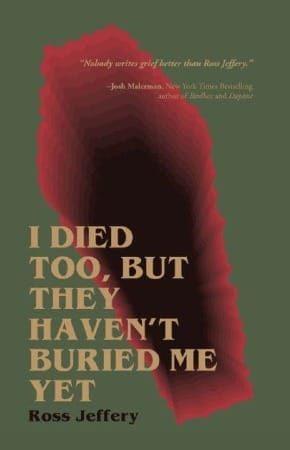
I'm pretty sure I talked a bit about this one in my Best Of 2023 list, but I never actually gave it a proper review for many reasons–the biggest being that I'm still winded from the haymaker that this book delivers. Much like Nestlings, I need to make sure I don't spoil much because the ending twist is what drives this powerful and painful book home.
I Died Too centers around a grieving, bigoted father named Henry. When his daughter was fourteen years old, she disappeared and left her father to stew in his drunken, hateful juices. When an enigmatic young man begins to appear at Henry's counseling meetings, offering a way in which Henry could see if his daughter is still alive, Henry bites at the bit. Alongside his friend, the utter madness unfolds down twisty, winding hallways until the truth is revealed and Henry receives his long necessary penance for his behaviors.
I always try and provide a heads up concerning this book whenever I see people buying it at the store, especially queer readers. This is in no way an easy book and I maintain that its writing and publishing was a bold and dangerous choice on behalf of Jeffery and CLASH Books. Queerness and identity play HEAVILY into this book, so much so that I had to double check with Ross at the end to make sure that much of this book was written in good faith, because cis people are often a little dicey when writing queer experiences.
But that's the thing–Ross Jeffery did write this book and did make exactly the point that he needed to, offering a look into experiences that aren't often represented in larger media. Would this story be even more authentic in the hands of a queer writer? Certainly. But what Jeffery captures in this book is the "other side" of much of these experiences. He captures the messiness of Henry's grief while showing us that we have very little to empathize with him on when he continues to be so hateful and bigoted. For this being what it is, this is so well executed and delivered it's one of those rare times when you could actually say a cis writer did a damn good job.
In terms of Grief Horror, this book HURTS. It hurts so much. For anyone familiar with Jeffery's work, you'll know that this is kind of his whole thing. As the blurb on this book contests, with the words of Josh Malerman himself, Ross Jeffery really gets this whole grief thing. His earlier 2023 release, The Devil's Pocketbook, is another great example of this and potentially even more brutal than this one at times. He's able to capture all of the complexities and contradictions of grief without demonizing any one character. It's a truly admirable talent.
All of this being said, I Died Too is a fantastic hidden gem of a Grief Horror tale that has been seemingly connecting with hundreds of readers everywhere. My colleague Peg put it up as one of her recent staff picks and we consistently sold out of it every other week. Especially during the holidays. It's that good. Just please tread carefully...
So, why?
Why is it that this subgenre has been having such a moment? The most obvious answer seems to stem from our experiences of the last several years. Things are bad and even saying that is a gross understatement. We continue to live through some of the most traumatic historical events of the past decade. Many look on in abject apathy as hundreds of thousands of people die from genocide, continuing illness, poverty–is it any wonder that those who don't reflect this apathy turn to something like horror to connect to this universal grief and trauma?
While all three works present different political makeups, each speaks to a larger form of grief that any reader can latch onto. Just because these stories are fiction does not negate the power they hold in bringing readers into awareness of other experiences and battles with grief and trauma. We may wrestle with these themes in our own unique ways, but it is within media that we often see our experiences reflected back. If more of these stories find themselves catapulted into the mainstream, would we see people's empathy shift? Is the state of Grief Horror an indicator that things are indeed shifting and changing?
I'm not sure if I have the exact answer. These are merely my earliest thoughts on the subject matter. There are hundreds of fantastic recent novels that grapple with grief and they are all waiting patiently for your hungry eyes. I think it's about time we let them in...
Green Fuse Burning is currently available through Stelliform Press and you can find Tiffany Morris @auroraomens on Instagram.
Nestlings is currently available through Tor Nightfire and you can find Nat Cassidy @catnassidy on Instagram.
I Died Too, But They Haven't Buried Me Yet is available through CLASH Books and you can find Ross Jeffery @rossjefferyauthor on Instagram.
